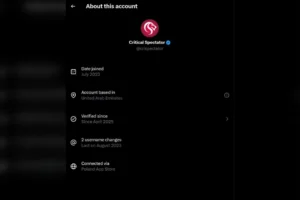
Last summer, the Chinese government released a proposal for a national internet ID system. The proposal was met with strong opposition, which was heavily censored online. (See CDT’s past coverage for examples.) The final rules for this new system were then released in May of this year, will be implemented on July 15, and remain largely similar to the original draft that was widely criticized. As the rollout date approaches, experts and activists voiced concern about the impact of these centralized internet controls.
On Wednesday, Article 19 and Chinese Human Rights Defenders (CHRD) released a joint analysis calling the new internet ID system a threat to online expression. They predicted that the system would negatively affect human rights defenders as a result of increased state surveillance and reduced anonymity; privacy concerns and lack of government accountability; and state control without borders.
Shane Yi, researcher at CHRD said: “Internet users across China already endure heavy censorship and control by the government. The new Internet ID regulations escalate Beijing’s attack on free speech, putting human rights defenders, journalists, lawyers, and anyone who questions authority at even greater risk.”
[…] Michael Caster, ARTICLE 19’s Head of Global China Programme said: “Anonymity provides for the privacy and security fundamental to exercising the freedom of opinion and expression. In further chipping away at potential online anonymity through the creation of a national internet ID, in an ecosystem where the Cybersecurity Law already mandates real-name identity verification, China is clearly seeking to intensify its efforts at silencing critical voices. And as China continues to position itself as a global digital governance standard-setter and cyber superpower, the risk is furthermore that we see such repressive policies gain traction beyond China’s borders.” [Source]
As Caster and others such as China Law Translate’s Jeremy Daum have noted, China already requires netizens to submit their real names when creating online accounts, as well as different types of biographical information depending on the platform. But the new system would centralize the process with a single ID for each person used to access all their accounts, and the ID would be stored directly under the government’s control. Last week, John Liu at CNN shared other critical reactions to the new ID system, including from CDT’s Xiao Qiang, who emphasized its ability to further enhance government surveillance and censorship:
“This is a state-led, unified identity system capable of real-time monitoring and blocking of users,” said Xiao Qiang, a research scientist studying internet freedom at the University of California, Berkeley. “It can directly erase voices it doesn’t like from the internet, so it’s more than just a surveillance tool – it is an infrastructure of digital totalitarianism.”
Control of China’s vast portion of the global internet has largely been delegated to a decentralized range of different groups, with authorities relying partially on the social media platforms themselves to identify comments deemed problematic. Xiao warned that a centralized system using the internet ID could make it much easier for the government to wipe out a user’s presence across multiple platforms at once.
[…] In late May, when the finalized rules were unveiled after a year, almost no criticism could be found online. Xiao explained that it’s not the first time authorities have spaced out the time between a proposal and its implementation, to allow critics to “blow off steam.”
“It’s done deliberately … Many of their measures follow the same pattern, and they’ve proven effective,” he said. [Source]
The new regulations state that registering for the system would be voluntary, but shortly after the proposal was announced last year, more than 80 apps rolled out beta tests of the system. In recent weeks, Chinese state media have hyped up the new system by noting that six million citizens have applied for and activated their internet IDs, and that the authentication app for the IDs has been downloaded over 16 million times. Earlier this month, Alex Colville at China Media Project provided a timeline of the evolution of China’s cyber ID system from 2015 to the present, and described how the system may eventually become mandatory, and could even be applied in offline, not just online, spaces:
State media coverage suggests the voluntary nature of these IDs may be temporary. CCTV recently aired detailed step-by-step instructions for viewers to apply — the voluntary nature of the system mentioned just once in passing at the beginning of the segment. The tone throughout implied that enrollment was expected, not optional.
[…] Take a closer look at state media coverage of the evolving cyber ID system and the expansion of its application seems a foregone conclusion — even extending to the offline world. Coverage by CCTV reported last month that it would make ID verification easier in many contexts. “In the future, it can be used in all the places where you need to show your ID card,” a professor at Tsinghua’s AI Institute said of the cyber ID. Imagine using your cyber ID in the future to board the train or access the expressway.
This long-term planning suggests the government is gently corralling the public into accepting a controversial policy. While Chinese state media emphasize the increased ease and security cyber IDs will bring, the underlying reality is more troubling. Chinese citizens may soon find themselves dependent on government-issued digital credentials for even the most basic freedoms — online and off. [Source]





